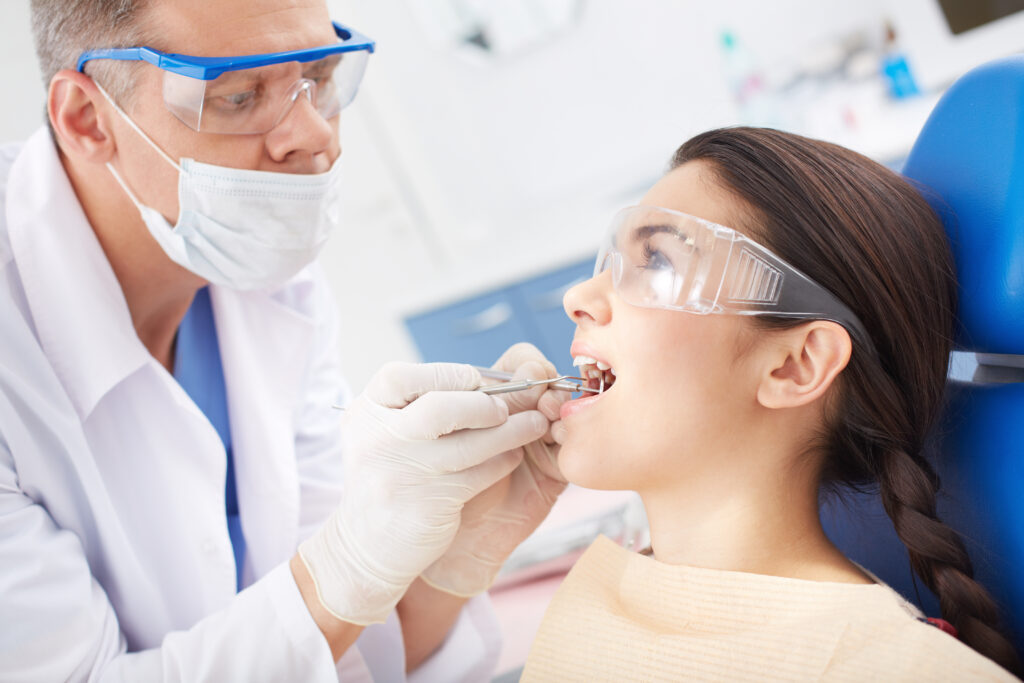Welcome to our blog post on post-dental bonding care! Congratulations on your newly bonded smile. Dental bonding is a popular cosmetic dental procedure that can enhance the appearance of your teeth and give you a beautiful, confident smile. But the journey doesn’t end with the bonding itself – proper aftercare is crucial to ensure that your new smile stays dazzling for years to come.
In this article, we will guide you through the dos and don’ts of post-dental bonding care, providing you with valuable tips and insights for maintaining your oral health and preserving the longevity of your dental bond. So sit back, relax, and let’s dive into the world of dental bonding aftercare!
Overview Of Dental Bonding
Dental bonding is a cosmetic dental procedure where a tooth-colored resin material is applied to the surface of the teeth and bonded using a special light. It can correct various dental issues, such as chips, cracks, discoloration, and gaps between teeth.
Importance Of Post-Bonding Care
Proper post-bonding care is crucial to maintain the beauty and longevity of your bonding. Neglecting this care can lead to discoloration, damage, or even premature failure of the bonding. Protect your investment by following these essential aftercare steps.
Dos For Post-Dental Bonding Care
Brushing twice a day is essential for maintaining the integrity of your dental bonding. Flossing and using interdental brushes help remove plaque and debris from hard-to-reach areas. Drinking water after meals helps wash away food particles, while non-staining oral care products preserve the appearance of your bonded teeth.
Brushing Twice A Day
Brushing twice a day is crucial for maintaining dental bonding. Use a soft-bristled toothbrush and fluoride toothpaste to gently clean your teeth. Brush in gentle, circular motions for two minutes each time to remove plaque and prevent staining.
Flossing And Using Interdental Brushes
Flossing and using interdental brushes are essential for maintaining the longevity of your dental bonding. These tools help remove plaque and food particles from hard-to-reach areas, ensuring a clean and healthy smile.
Drinking Water After Meals
Drinking water after meals is an important step in post-dental bonding care. It helps to rinse away any food particles or residue that may be stuck on the teeth or bonding. Additionally, staying hydrated can promote overall oral health and prevent dry mouth.
Using Non-Staining Oral Care Products
Using non-staining oral care products is essential for maintaining the appearance of your dental bonding. Look for toothpaste and mouthwash without strong dyes or abrasive ingredients that could cause discoloration. Opting for these products will help protect your smile’s beautiful results!
Reducing Habits That Can Damage The Composite Resin
Reducing habits that can damage the composite resin is crucial for maintaining the longevity of your dental bonding. Avoid biting on hard objects like pens or using your teeth as tools. Additionally, refrain from chewing on ice or biting into sticky foods to prevent any potential damage.
Regular Visits To The Dentist
Regular visits to the dentist are crucial for maintaining the longevity of bonding. Dentists can identify any issues early on and provide necessary touch-ups or repairs. These check-ups also allow for professional cleaning, ensuring your smile stays healthy and beautiful.
Don’ts For Post-Dental Bonding Care
Avoiding hard and sticky foods is essential for post-dental bonding care. Limit consumption of staining substances, refrain from using teeth as tools and steer clear of tobacco and excessive alcohol. Remember not to grind or clench your teeth to maintain the longevity of the bonding.
Avoiding Hard And Sticky Foods
One important aspect of post-dental bonding care is avoiding hard and sticky foods. These types of foods can potentially damage the composite resin used in the bonding process, leading to premature wear or even breakage. It’s best to opt for softer, non-sticky options to maintain your beautiful smile.
Limiting Consumption Of Staining Substances
Limiting the consumption of staining substances is crucial for maintaining the appearance of bonding. Avoid beverages like coffee, tea, and red wine, as well as foods like berries and tomato sauce that can cause discoloration.
Not Using Teeth As Tools
Using your teeth as tools can be tempting, but it’s a big no-no after dental bonding. Avoid using them to open packages, tear tape, or crack nuts. This will help protect the composite resin and ensure a long-lasting beautiful smile.
Avoiding Tobacco And Excessive Alcohol
Avoiding tobacco and excessive alcohol is crucial for maintaining the longevity and appearance of bonding. These substances can stain the composite resin and also contribute to oral health issues.
Not Grinding Or Clenching Teeth
Grinding or clenching your teeth can put excessive pressure on bonding, leading to damage. Avoid this habit to ensure the longevity and integrity of your bonded teeth.
How Long Does Dental Bonding Last?
Dental bonding can last anywhere from 4 to 8 years, depending on factors like oral hygiene, eating habits, and the location of the bonding. Regular dental check-ups can help ensure its longevity.
When To Seek Dental Care After Bonding?
Knowing when to seek dental care after bonding is crucial for maintaining the longevity of your smile. If you experience any pain, sensitivity, or damage to the bonded area, it’s important to schedule an appointment with your dentist promptly. Ignoring these issues can lead to further complications down the line. Stay proactive and prioritize your oral health!
Taking care of your bonding is crucial to maintain a beautiful and healthy smile. By following the dos and don’ts of post-dental bonding care, you can ensure that your composite resin stays in excellent condition for as long as possible.
Remember to brush your teeth twice a day, floss regularly, and use non-staining oral care products. Drinking water after meals will help rinse away any food particles that may become trapped around the bonded areas. Additionally, reducing habits such as biting nails or chewing on hard objects will prevent damage to the composite resin.
It’s also important to schedule regular visits with your dentist for professional cleanings and examinations. This way, any issues or concerns can be addressed promptly before they escalate into more significant problems.
On the flip side, there are certain things you should avoid after bonding. Hard and sticky foods can put unnecessary strain on the bonded areas, potentially causing them to chip or break. Limiting the consumption of staining substances like coffee, tea, or red wine will help preserve the color of your bonding over time.
Furthermore, refrain from using your teeth as tools for opening packages or containers; this can lead to damage not only to your dental bonding but also to your natural tooth structure. Avoiding tobacco and excessive alcohol consumption is essential for maintaining overall oral health.
While bonding is a durable solution for enhancing your smile’s appearance and correcting minor imperfections in teeth shape or coloration – it’s important to note that its lifespan varies depending on several factors such as oral hygiene practices and lifestyle choices Dental bonding typically lasts between 3-10 years with proper care
If you experience any issues such as pain or sensitivity around the bonded area after treatment – it is advisable to seek immediate dental attention
By following these guidelines for post-dental bonding care diligently, you’ll be able to enjoy a stunning smile that lasts longer while ensuring optimal oral health! Remember – consistency is key!
So, take care of your dental bonding like you would with any other dental work.


